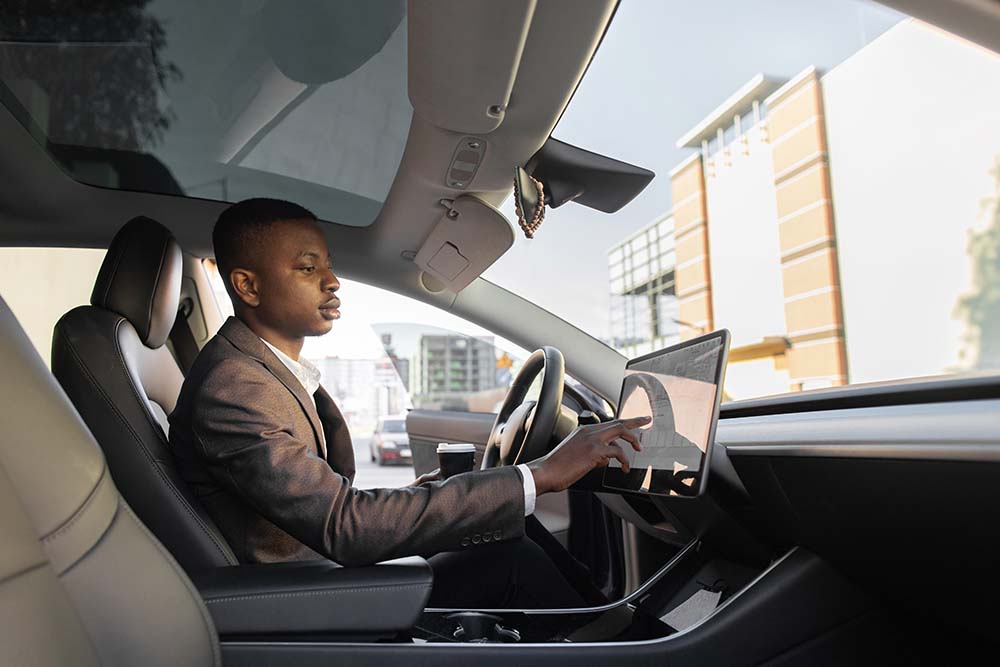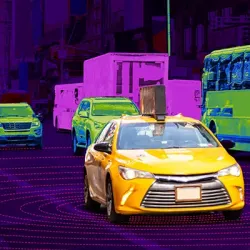Industry Knowledge
Top Autonomous Vehicle Challenges and How to Solve Them
Autonomous vehicles (AVs) are facing obstacles preventing their acceleration toward growth and success. How can AV companies navigate these roadblocks?
Autonomous vehicles (AVs) have the potential to change transportation and make our daily lives better by enhancing mobility and road safety. The future of self-driving cars is bright with projections estimating the market to surge to around US$2 trillion by 2030[1]. Countries and companies are competing to grab their share of the AV market. However, despite the significant technological advancements and investments in recent years, many AV companies are still facing roadblocks preventing them from accelerating their growth.
In this article, we will explore the key challenges for autonomous vehicles and discuss potential strategies that could pave the way to a fully autonomous future.
Current Challenges in Autonomous Vehicle Development
Safety and Reliability Concerns
Challenge: Safety is one of the primary concerns for any new technology, especially one that removes the human element from a complex task such as driving. AV companies face the difficult task of ensuring their systems are foolproof across a wide range of potential on-road situations. However, high-profile incidents involving autonomous vehicles have made the public skeptical, and the absence of standardized benchmarks for measuring autonomous vehicle safety adds to the complexity of the development process.
Solution: To address safety concerns, continuous refinement of sensing technologies such as LIDAR, radar, and cameras is required. When combined with sophisticated artificial intelligence algorithms, these improvements can lead to more reliable perception and decision-making. Furthermore, establishing universal safety standards and protocols, such as the Safety First for Automated Driving (SaFAD)[2], could guide manufacturers and reassure the public about the safety of autonomous driving.
Regulatory and Legal Issues
Challenge: Autonomous vehicle regulations vary greatly from country to country, making it difficult for companies to deploy self-driving cars internationally. For instance, Japan permits Level 4 AVs if they adhere to its stringent safety standards, while the US has a state-by-state approach where some states like Arizona are very open to AV testing. In China, the government is bullish on AVs, pushing for rapid advancement with permissive regulations. Meanwhile, Germany and the broader EU are developing frameworks that are cautious but supportive of AV innovation, as seen in the recent legislative amendments to the German Road Traffic Act to allow driverless vehicles on public roads under specific conditions.[3]
Solution: To navigate this regulatory patchwork, AV companies should work with governments and international bodies to establish federal guidelines and international agreements for regulatory cohesion and create a more predictable environment for innovation and expansion. In addition, collaborating with the insurance industry can help address AV liability and risk. Only through an integrated approach can companies overcome regulatory and legal barriers and ensure the safe and widespread adoption of autonomous vehicles.
Technological Changes and Ethical Challenges
Challenge: Developing fully autonomous driving software is an immensely complex task. Systems must analyze vast amounts of sensor data in real-time and make split-second decisions like a human driver or even better, which presents unique ethical issues with autonomous vehicles. In life-and-death situations, should AVs prioritize passengers or pedestrians? Should vehicles prioritize the greater good or individual safety? These dilemmas are not easily solvable and are subject to cultural and individual variances in moral judgment.
Solution: The path forward involves advanced machine learning training data and techniques that can evolve with experience. High-fidelity simulations should be used to test scenarios that are either unsafe or impractical to be conducted in real life. The validation process should be robust and cover millions of virtual driving miles. For faster learning, AV companies should share extensive data, taking into account privacy and intellectual property.
In addition, having an open and inclusive conversation with ethicists, lawmakers, and the public is important to agree on the ethical frameworks that AVs should follow. Through public debates and establishing ethical guidelines, we can solidify the values that AVs should uphold during critical situations.

Scalability and Infrastructure Adaptation
Challenge: Another key self-driving car challenge is the significant investment and infrastructure adjustments needed to scale autonomous vehicle development from prototypes to mass production. Moreover, retrofitting current roadways and city layouts designed for human drivers to facilitate AV operability is a substantial undertaking.
Solution: Partnerships between automotive manufacturers, technology companies, and governments are crucial to finance infrastructure upgrades. Upgrading the existing roadways with smart traffic signals and dedicated lanes for AVs and enabling vehicle-to-everything (V2X) communication can improve the efficiency and safety of autonomous operations.
Public Perception and Consumer Acceptance
Challenge: A major challenge in autonomous driving is overcoming psychological barriers associated with adopting self-driving technology. Consumer hesitancy is being attributed to fears about job displacement, especially in the transportation sector, and concerns about entrusting driving duties and human lives to a machine. Additionally, high-profile incidents involving self-driving cars have led to increased risk perceptions, which further erode the trust.
Solution: There needs to be transparency, engagement, and education. Companies should showcase the potential benefits of the technology, challenge the idea of job loss, and offer tangible experiences. A compassion-driven communication plan can help change skepticism into enthusiasm for autonomous vehicles.
Data Security and Privacy Concerns
Challenge: Autonomous vehicles rely heavily on collecting and processing vast amounts of data to function properly. However, this reliance on data raises concerns about autonomous vehicle data privacy and security. As vehicles become more connected and data-driven, they are more vulnerable to potential cyberattacks that could compromise individuals' privacy and public safety.
Solution: AV companies must prioritize building robust cybersecurity frameworks as core features of their vehicles and systems. They should invest in advanced encryption methods, continuous security updates, ongoing threat monitoring, and penetration testing. Additionally, transparency about data policies and rigorous adherence to privacy regulations are crucial in earning and maintaining user trust. Setting industry standards and best practices can help address autonomous driving challenges and reassure users and stakeholders about AV companies’ commitment to protecting sensitive information.
The journey toward fully autonomous transportation is an intricate one. As the industry surmounts these autonomous vehicle challenges, investment in foundational AI research and trust & safety systems will continue to be imperative.
The Strategic Role of Outsourcing in Navigating Autonomous Driving Challenges
The AV landscape is undoubtedly complex and it can seem overwhelming to navigate alone. However, partnering with specialized providers like TaskUs can be a strategic move for companies in this field. TaskUs has a wealth of experience in AI technology training, trust and safety, digital customer experience, consulting, and talent management, and provides tailor-made solutions and outsourcing benefits for the autonomous vehicle industry.
- AI Training
- Autonomous driving systems rely heavily on AI and machine learning to interpret the surrounding environment with precision. TaskUs provides a comprehensive range of services that streamline AI training through detailed data annotation and tagging, intent assessment, point cloud processing, and HD mapping.
In addition, TaskUs also offers operational support which includes orchestrating live road testing, teleoperation for immediate online assistance, and robust fleet monitoring to enhance the performance and safety of AV technologies on the road. With these integrated services, AV companies can fine-tune their driving systems, accelerate development, and maintain high safety standards.

CASE STUDY
Real-Time Data Visualization for an Autonomous Driving Company
Learn how we helped an autonomous vehicle company monitor and provide real-time support for vehicles on the road
Download the Case Study- Trust & Safety and Regulatory Compliance
- TaskUs offers a range of trust and safety services essential for autonomous vehicle companies dealing with the complex combination of operational safety and regulatory compliance. These services include ensuring the availability of robust emergency calling and incident response systems, moderating platform content, and handling violation reports. By providing real-time moderation of user interactions and comprehensive compliance auditing, TaskUs assists in mitigating legal risks and building public trust.
- Brand Protection and Community Management
- Brand protection services are crucial for AV companies looking to safeguard their online reputation and align public perception with their commitment to safety and ethics. TaskUs helps maintain the integrity of AV brands by actively monitoring for misinformation and conducting online community management. This proactive approach to digital reputation ensures that AV companies can effectively communicate their values and respond to the public, reinforcing trust and advancing the acceptance of driverless technology.
- Digital Customer Experience
- Providing a top-notch digital customer experience is crucial for the success of AVs. This experience should begin from the moment a customer first learns about self-driving cars and continue throughout their journey with the product. At TaskUs, we offer outsourced customer support for the automotive industry through various channels that provide informative content, virtual simulations, and real-time assistance. By demystifying AV technology and addressing user concerns, we help increase the chances of consumer acceptance and satisfaction.
- Back Office Operations
- TaskUs streamlines operations by conducting reviews, research, and data analysis that are specific to digital fleet management. These services ensure that the quality of products is accurate and relevant while also managing cost containment. Outsourcing back office support for autonomous driving companies improves their efficiency and enables them to make data-driven decisions, helping maintain a lean and competitive profile.

By teaming up with experts specializing in the intricate nuances of technology, safety, and customer relations, AV companies can improve their ability to fulfill the promise of self-driving cars. TaskUs provides access to a wealth of resources and knowledge, positioning companies to not only confront existing autonomous vehicle challenges but also to revolutionize how we perceive and experience transportation in the years to come.
- 2^Safety First for Automated Driving
References
We exist to empower people to deliver Ridiculously Good innovation to the world’s best companies.
Useful Links












